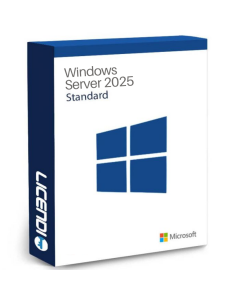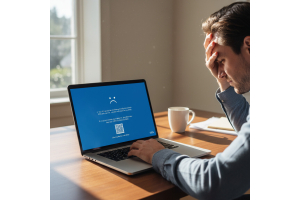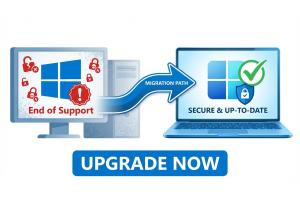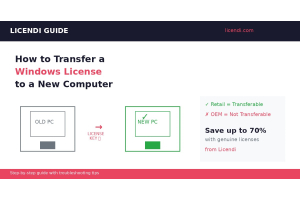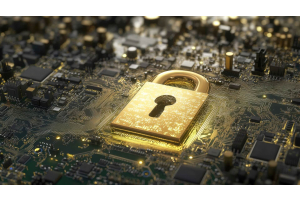How to Safely Purchase Second-Hand Software
Sections Overview
- Introduction
- What Does “Second-Hand Software” Mean?
- The Value of Second-Hand Software for Businesses
- Legal Foundations in the European Union: The Principle of Exhaustion
- The Situation of Second-Hand Software in Mexico
- Second-Hand Software in Brazil
- Second-Hand Software in Colombia
- Risks of Buying on “Cheap” and Unverified Sites
- Why Work with a Legal and Reliable Reseller
- How to Ensure Auditability and Avoid Compliance Issues
- Practical Tips for Buyers
- Frequently Asked Questions (FAQ)
- Conclusion: Optimize Your IT Investment Strategy with Complete Confidence
- Final Thoughts and Future Perspectives
1. Introduction
The market for “second-hand” or “used” software licenses has become increasingly relevant worldwide. Many companies and individual users have realized that it is possible—and often perfectly legal—to acquire software licenses that have already been sold to a first owner, in order to save costs without sacrificing quality or performance.
In the European Union (EU), a historic 2012 ruling laid the groundwork for a clear and legitimate used-software market. On the other hand, in Latin American countries such as Mexico, Brazil, and Colombia, regulations are not always as specific, creating certain gray areas that must be understood to avoid potential infringements or legal disputes.
Throughout this blog, we will delve into:
- The legal framework supporting the purchase and sale of used software in the EU.
- The peculiarities and legal loopholes in Mexico, Brazil, and Colombia.
- The added value of buying licenses through reliable resellers, capable of demonstrating the traceability and legality of each product.
- The consequences of acquiring licenses through less trustworthy portals, where the risk of non-compliance is high.
- Advice and best practices so that your organization or business can benefit from this market without incurring unnecessary risks.
By the end of this reading, you will have a clear vision of how to leverage second-hand software to optimize costs and safeguard the legality of your operations.
2. What Does “Second-Hand Software” Mean?


2.1 General Definition
Second-hand or “used” software refers to licenses that have been previously sold and subsequently resold or transferred to a new user. This is common in the case of perpetual licenses, where a single payment is made in exchange for permanent usage rights.
2.2 Why Can “Used” Be Misleading?
- Unlike a physical product, software does not wear out or lose functionality over time. Therefore, a previously used license provides the same features as a newly purchased license, as long as the key is valid.
- “Used” is more about a legal status (there has already been an initial transaction) than any material wear and tear of the product.
2.3 Types of Second-Hand Licenses
- Retail Licenses: Acquired in physical format (CD/DVD) or digital format (download with a code), typically intended for individual or home use.
- OEM Licenses: Associated with specific hardware (e.g., a computer that comes with pre-installed software). They are usually transferred along with that hardware; separating them may be subject to certain restrictions.
- Volume Licenses: Ideal for companies with a large number of workstations. Sometimes, if the organization downsizes or changes technology, it opts to get rid of surplus licenses.
3. The Value of Second-Hand Software for Businesses
3.1 Cost Savings
- Reduced Investment: Second-hand software can be acquired at prices ranging from 30% to 70% less than new licenses, which positively impacts the IT budget.
- Resource Optimization: The funds saved can be allocated to other crucial areas (e.g., infrastructure, cybersecurity, training, etc.).
3.2 Flexibility and Scalability
For organizations with evolving needs—due to projects or staff fluctuations—the ability to quickly buy or sell licenses provides great flexibility. It also allows maintaining stable software versions if the latest update isn’t required, taking advantage of licenses from older editions.
3.3 Promoting Sustainability
- Reusing licenses promotes a more conscious and efficient software consumption model, preventing the unnecessary creation of new keys or versions.
- This practice aligns with the trend toward a circular economy and waste reduction (although, in this case, digital).
4. Legal Foundations in the European Union: The Principle of Exhaustion and the Case
The EU stands out for having a solid regulatory framework that supports the purchase and sale of used licenses, as long as certain requirements are met.
4.1 Principle of Exhaustion of Copyright
According to Directive 2009/24/EC on the legal protection of computer programs, when a rights holder (for example, the software publisher) legitimately places a license on the market in the EU/EEA, their right to distribute that copy is exhausted. This empowers the buyer to resell that license, as it is considered that the holder has already received their remuneration from the initial sale.
4.2 The v. Oracle Case (2012)
- C-128/11 Judgment by the CJEU : It was concluded that by granting perpetual licenses in exchange for a one-time payment, Oracle was effectively carrying out a “sale,” which meant it could not oppose the subsequent resale of such licenses.
- The original seller must stop using the license (removing it from their systems) before transferring it.
- The ruling emphasized that clauses in EULAs prohibiting transfer do not override the principle of exhaustion, as long as it is a perpetual license.
4.3 Fundamental Conditions
- Unlimited Duration License: Does not apply to temporary subscriptions.
- Single Payment: The license must have been purchased via a non-recurring payment.
- The Seller Must Remove Their Copy: Prevents simultaneous use and infringement.
- No Fragmentation of Volume Licenses: If sold as a block, it must be resold as such.
- Irrelevance of “Non-Transferable” EULA Clauses: They become void under these circumstances.
This clear framework explains why there is an active market for second-hand software in the EU and why serious resellers can legally offer these licenses.
5. The Situation of Second-Hand Software in Mexico
Outside the EU, the situation is somewhat murkier. In Mexico, the purchase and sale of second-hand software is not specifically regulated.
5.1 Principle of Exhaustion in Mexican Legislation
There is a general acknowledgment that once a physical copy is sold, the rights holder cannot oppose its resale. However, software is commonly marketed through usage licenses, where the publisher retains greater control. EULAs often restrict transfer.
5.2 Registration of EULAs and License Agreements
Historically, license agreements had to be registered with the National Copyright Institute (INDAUTOR) to be valid against third parties. In practice, very few licenses are registered individually. This creates a degree of legal ambiguity, leaving it unclear whether non-transfer clauses apply or not.
5.3 Physical Copies vs. Digital Downloads
- Physical: Selling an original CD/DVD that one no longer uses may fall under the scope of the exhaustion right.
- Digital: Transfer often implies a new reproduction, something that requires express authorization and is generally limited by EULAs.
5.4 Lack of Clear Precedents
There is no analogous ruling in Mexico clarifying whether perpetual digital licenses can be freely resold. Therefore, most companies prefer to avoid risks and turn to resellers who can at least provide some guarantee of origin and clear conditions.


6. Second-Hand Software in Brazil
Brazil has the Software Law (Law 9.609/1998) and a complementary Copyright Law (Law 9.610/1998). Both reinforce the idea that software is not “sold” but rather “licensed.”
6.1 Licensing Under Brazilian Law
The rights holder retains fundamental rights over the software and only grants the end user the right to use it. Thus, EULA clauses prohibiting resale are typically valid, as there is no judicial precedent indicating otherwise.
6.2 Limited Market
There is no ruling similar to the one issued by the Court of Justice of the European Union (CJEU). Companies seeking to sell surplus licenses face restrictive license terms and a lack of legal clarity.
6.3 Implications for Buyers
When buying second-hand software in Brazil, it is advisable to check whether the publisher allows transfers and what documentation validates the transaction. A buyer who purchases licenses from unreliable sites could find themselves in a very vulnerable position in the event of an audit.
7. Second-Hand Software in Colombia
With Law 1915 of 2018, Colombia more explicitly incorporated the notion of copyright exhaustion into its legislation, although some questions remain regarding software.
7.1 Legal Acknowledgment of Exhaustion
After the first sale of a work, the rights holder cannot prevent subsequent resales of the physical medium containing that work. This is clear for books, CDs, etc. But what happens with software that is digitally downloaded?
7.2 Digital Transfers: A Gray Area
Installing or using the software on a new device creates a new copy, which typically requires the rights holder’s authorization. No judicial rulings have yet clarified whether Colombia will adopt a European-style approach for perpetual licenses.
7.3 In Practice
The government’s main priority is to combat piracy or unlicensed use. Therefore, companies looking to save on costs through used licenses must ensure the legitimacy of their origin to avoid potential penalties.
8. Risks of Buying on “Cheap” and Unverified Sites
The internet is filled with tempting offers on software licenses. However, if a price seems too good to be true, it’s worth examining it carefully.
8.1 Legal and Piracy Risks
- Sites that resell keys obtained with stolen credit cards or distribute the same key to multiple users. Anyone who buys such keys could face accusations of using pirated software.
- Keys blocked by the manufacturer, complaints, or the shutdown of the site leave the buyer without support or rights.
8.2 Auditors and Fines
Companies like Microsoft, Adobe, or Autodesk often audit organizations suspected of improper use. The Business Software Alliance (BSA) also runs campaigns in multiple countries. If a company is found to have illegal licenses, it faces hefty fines and is required to purchase valid licenses at market price.
8.3 Inability to Prove Legitimacy
Without invoices or documents supporting ownership, there is no way to demonstrate that the license was obtained legally. In regulated environments (finance, healthcare, government), this can lead to additional reputational damage.
9. Why Work with a Legal and Reliable Reseller
Faced with the uncertainties described, a reseller specializing in second-hand software minimizes risks and ensures that each transfer complies with the law and license terms.
9.1 Traceability Guarantee
A reputable reseller keeps complete records: the initial invoice, the transfer agreement, confirmation that the previous seller has removed their copy, etc. This makes it easier to prove legality in any software audit.
9.2 Expertise with Contractual Restrictions
Many licenses specify very particular conditions for authorizing a transfer. Professionals are aware of these conditions and can identify which licenses can or cannot be resold. They make sure that the license to be transferred is perpetual and meets the requirements of local or regional regulations.
9.3 Activation Guarantee and Support
In addition to having support for the installation and activation phase, if any issues arise with the key, the reseller can assist the buyer in dealing with the manufacturer.
Special Mention: Licendi
A clear example of a reliable and specialized reseller is Licendi, whose licenses originate in Europe; they also offer one month of activation guarantee on all their products. By working with providers of this caliber, your company benefits from greater legality, transparency, and competitive pricing, ensuring a smooth and secure purchasing process.


10. How to Ensure Auditability and Avoid Compliance Issues
10.1 Key Documentation
To demonstrate to auditors or software manufacturers that your licenses are legitimate, you need:
- Original Invoice or Receipt: Issued by the distributor or an authorized holder.
- Transfer Certificate or Agreement: A document proving the license transfer from the previous owner to the reseller, and then to you.
- Uninstallation Declaration: The original seller must certify that they no longer use the license (to prevent duplication).
- Policies for Volume Licenses: If the license comes from a volume agreement, confirm that it is transferred as a block or in compliance with regulations.
- Proof of Origin (EU/EEA) if the European exhaustion principle applies.
10.2 Internal vs. External Audits
- Internal: Many organizations conduct periodic software inventory reviews using SAM (Software Asset Management) tools.
- External: These may be requested by the manufacturer or the BSA. Having the above documentation reduces the risk of fines or disputes.
10.3 Usage Policies and Training
It is advisable to implement procedures that prevent employees from installing unauthorized software on their own. Training and awareness help avoid mistakes that could lead to legal or security vulnerabilities.
11. Practical Tips for Buyers
- Verify the Reseller's Reputation: Check reviews and testimonials from other customers.
- Request Complete Documentation: An activation code alone is not enough; ask for proof of origin and legal transfer.
- Clarify the Nature of the License: Is it perpetual or subscription-based? Was it acquired with a one-time payment?
- Ensure Activation Support: Check if the reseller provides assistance for software reactivation.
- Beware of Unrealistically Low Prices: A deal that seems too cheap, without verification, often hides something suspicious.
- Consider Geographic Restrictions: The exhaustion principle is often regional (e.g., European). Know your country’s regulations if the license originates from another region.
- Ask About Updates and Support: Since it’s a used license, does it include update or maintenance rights? Clarify this before purchasing.


12. Frequently Asked Questions (FAQ)
12.1 Is second-hand software legal worldwide?
No. The clearest legal framework is in the EU. In other regions, such as Mexico, Brazil, or Colombia, there is no well-established judicial doctrine, and in general, EULAs tend to restrict resale.
12.2 Can I resell an unused volume license?
It depends on the jurisdiction and the type of contract. In the EU, a license acquired as a block cannot be divided. It must be transferred in its entirety while complying with the directive’s conditions.
12.3 What about online activation systems?
A reliable reseller will guide you through the reactivation or transfer process. If the manufacturer does not allow it, a formal procedure may be required to change the license holder.
12.4 How can I prove legitimacy during an audit?
It is essential to keep purchase documentation, transfer agreements, and proof of uninstallation from the previous license holder.
12.5 Are all “cheap” licenses illegal?
Not always, but most websites offering “too-good-to-be-true” prices provide no documentation. This significantly increases the risk of them being illicit.
12.6 Can I buy second-hand software in the EU and use it in Latin America?
In theory, yes. However, the exhaustion doctrine is primarily regional. The publisher could challenge its validity outside the EU if local laws do not recognize it or if the EULA prohibits it.
12.7 How do I know if a license is perpetual or subscription-based?
The contract or product description specifies this. A trustworthy reseller should be able to clarify it before the purchase.
13. Conclusion: Optimize Your IT Investment Strategy with Full Confidence
Acquiring second-hand software can represent significant savings and a way to manage IT resources more flexibly. However, the success of this strategy lies in the legality and documentation supporting each license.
- The EU Case: It serves as the best example of how regulations and legal precedents have fostered a transparent market for perpetual licenses.
- Latin America: Mexico, Brazil, and Colombia have legal gray areas in digital license sales, requiring a precise understanding of each EULA and the support provided by a specialized reseller.
- Reliable Suppliers: They make all the difference. In particular, Licendi offers European-origin licenses with a one-month activation guarantee, providing security and peace of mind to buyers.
- Avoid Suspicious Websites: Unrealistic offers often involve irregular licenses, legal risks, and the potential for future blocks.
- Management and Auditing: Keeping documents such as invoices, transfer records, and uninstallation declarations is essential for successfully passing any inspection.
By following the best practices outlined—conducting internal audits, purchasing from reputable resellers, and maintaining proper documentation—second-hand software becomes an economical, legal, and reliable alternative to enhance your IT investment strategy.
Final Thoughts and Future Perspectives
Perpetual Licenses and Subscription Models
The second-hand software market is constantly evolving, and it is expected to continue adapting to new distribution and licensing models. With the increasing adoption of subscription-based models (“Software as a Service” or SaaS), many businesses wonder whether the perpetual licensing scheme that facilitates the second-hand market will remain relevant. For now, demand for these used licenses still exists, as there are companies and individuals who prefer a license that does not involve monthly or annual fees. Additionally, users value the ability to use the acquired software indefinitely, giving them a greater sense of control and autonomy than they might experience in a subscription-based environment. Consequently, the very existence of this market can serve as a counterbalance to the widespread trend of “renting” software, allowing definitive purchase options to persist, better suiting various budgets and requirements.
Another factor influencing the continuity of perpetual and second-hand licenses is the support policies of major software manufacturers. Some industry giants, such as Microsoft, Adobe, or Autodesk, in their effort to push cloud adoption, limit the compatibility of their older products or discontinue technical support for certain versions. However, even in these scenarios, users who do not need the latest features or who work with a stable software ecosystem (for example, public administrations using legacy systems, design studios relying on a specific software version, or industries requiring compatibility with older hardware) may still acquire used licenses for these products, relying on their proven stability. Thus, as long as there is demand for previous versions, the legal resale possibility supported by the principle of exhaustion will remain relevant.
Legal Evolution and the Principle of Exhaustion
It is also worth considering the long-term legal landscape. In the European Union, the precedent set by key court rulings has sparked multiple debates regarding the interpretation of the term “sale” in the digital environment. As national laws and international intellectual property treaties progress and are updated, new regulations could emerge that further refine the resale of digital licenses. For example, a scenario could develop where even disaggregated volume licenses are allowed under certain conditions, or where the validity of digital license transfers outside the EU is fully clarified. In any case, the current situation demonstrates a real interest in harmonizing regulations to balance the rights of software owners and consumers.
In Latin America, the development of the second-hand software market will also depend on how each country adopts or adapts principles of exhaustion in its local legislation. In some cases, the lack of legal precedents creates gaps that courts will need to address over time. However, the region’s general trend of economic collaboration and integration, combined with the influence of international agreements (such as those signed with the European Union or the United States), may accelerate the adoption of approaches closer to the European model. Some countries might even introduce specific laws to regulate digital software resale, providing greater legal certainty for buyers and sellers. If this happens, legitimate and well-organized resellers would particularly benefit, as their traceability and documentation services would become essential.
Technological Trends and Market Changes
On the other hand, the rise of technologies such as virtualization, containerization, and cloud computing raises new questions about the “materiality” of a license. If software runs exclusively in the cloud, without the end user ever possessing a local copy, how does this fit into the traditional exhaustion principle, which is based on the idea of a “copy” changing hands? There are already legal doctrines attempting to resolve this issue, but most cloud-based software agreements are presented as “services” rather than product sales. This reinforces the idea that perpetual licenses—and therefore, the second-hand market—will remain limited to specific types of products (almost always local installations, offline activations, or older software versions) as long as there is a need and preference for such solutions.
An often-overlooked aspect is the influence that the business sector can exert on major software developers. Many organizations, including small and medium-sized enterprises (SMEs), public administrations, and multinational corporations, still operate infrastructures where fully migrating to the cloud or subscription models is unfeasible due to costs, security concerns, legacy integrations, or connectivity limitations. In this context, if a significant number of these entities advocate for their right to buy and sell perpetual licenses legally, they may pressure major software providers to maintain transfer policies or avoid obstructing the resale of licenses that were originally “sold” in a strict sense. As a result, business practices and real market needs will act as a brake on the complete replacement of traditional licensing models, even in the face of aggressive subscription migration plans.
For the end buyer, all these reflections translate into both advantages and opportunities, as well as the responsibility to stay informed about the latest legal and technological trends. Beyond thoroughly understanding EULA restrictions and keeping the necessary documentation, buyers should assess their real needs: Do they require a specific software version? Do they need compatibility with particular plugins or hardware? Or does their business model favor always-updated cloud software? Making these decisions wisely and understanding the market options, including second-hand software, provides a broader range of investment opportunities in IT.


The Influence of the Business Sector and the Professionalization of Resellers
From the resellers' perspective, the future entails an increasing professionalization of their services. This means strengthening verification mechanisms for the origin of licenses, promoting transparency in communication with customers, and, in many cases, establishing bridges of dialogue with software manufacturers themselves. While some manufacturers may view the second-hand market with skepticism, others might see value in collaborating with verified resellers to maintain indirect control over the lifecycle of their products and prevent piracy. This approach fosters a healthier ecosystem where all stakeholders understand that legal and well-documented resale is preferable to a scenario of clandestine transactions or legal loopholes that could lead to fraud.
Ultimately, second-hand software has an established presence, particularly in the EU, and a promising future, as long as the right balance between technological innovation and respect for intellectual property is maintained. From a sustainability perspective, it is a valuable resource that prevents planned obsolescence and reduces overall costs. From a business standpoint, it provides a cost-saving channel and access to stable versions that can be critical for certain processes. Meanwhile, from a legal perspective, it will remain a topic of discussion and evolution as digital commerce continues to grow and transform. Staying informed about these developments, working with a reliable reseller, and managing software assets responsibly are key to maximizing the benefits of the used license market in the coming years.
Thus, the main conclusion from these reflections is that, far from being a passing trend, the second-hand software market is a strategic ally for users, businesses, and institutions seeking flexibility, savings, and greater control over their IT investments. Legislative changes and innovations in digital distribution will undoubtedly influence how this resale is managed, but the strength of the exhaustion principle in the EU—along with the gradual adoption of similar legal frameworks in other regions—ensures that second-hand software will continue to play a fundamental role. The key will lie in the ability of all stakeholders (buyers, resellers, and manufacturers) to find a balance between commercialization interests and legitimate usage rights.




